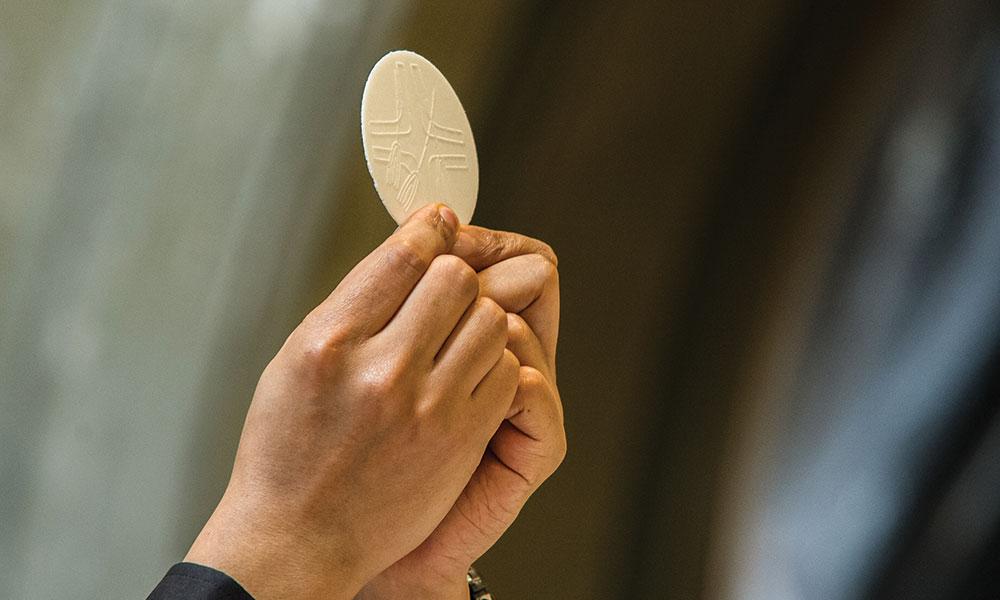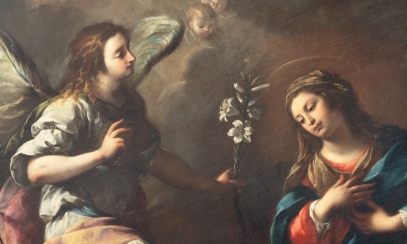
The True Presence of Christ
This is my body! This is my blood! Now we are at the heart of the Eucharistic Prayer. Jesus told us to do this. For a moment, the priest is no longer praying to the Father. Rather, he is repeating the words of the Son. He is acting in the person of Jesus in a most direct way.
This is my body! This is my blood! Now we are at the heart of the Eucharistic Prayer. Jesus told us to do this. For a moment, the priest is no longer praying to the Father. Rather, he is repeating the words of the Son. He is acting in the person of Jesus in a most direct way.
But what exactly is happening? While we recognize that Jesus is present in the Scriptures as they are proclaimed, in the Church gathered in his name, in the poor whom we serve, and in the person of the priest, we believe that Jesus is uniquely present, what we call “really” present in the bread and wine once they are consecrated.
Now let us be clear, we profess with the Council of Trent that in the Eucharist, “the body and blood, together with the soul and divinity, of our Lord Jesus Christ and, therefore, the whole Christ is truly, really, and substantially contained.” (see CCC 1373)
This is not, however, a presence which changes the outward characteristics of the bread and wine. Even at an electron microscope level, the bread and wine still smell, taste, feel and look like bread and wine. It is faith which allows us to accept that this is really Jesus whole and entire.
Now some may bring up the existence of eucharistic miracles where actual flesh and/or blood has been detected. These miracles are direct acts of God apart from the words spoken by the priest. They are extraordinary and not the norm. These miracles are usually meant to help deepen our faith, especially if we have become somewhat jaded by the daily miracle of the Mass.
St. John Chrysostom wrote: “It is not man that causes the things offered to become the body and blood of Christ, but he who was crucified for us, Christ himself. The priest, in the role of Christ, pronounces these words, but their power and grace are God’s. This is my body, he says. This word transforms the things offered.” (CCC 13275)
And this real presence of Jesus under the forms of bread and wine remains with us. That is why we have tabernacles in our churches, places where we reserve the consecrated hosts so that Jesus Christ can continue to be worshiped and so that we might provide Communion for the sick and homebound. That is also why we genuflect toward the tabernacle when we enter or leave the church, to show our love and devotion for our Lord who is always present there for us.
The Eucharist is an incredible gift which Jesus left us. He really did not want to leave us orphans. We possess the abiding presence of the Trinity in our lives as baptized Christians. In addition, Jesus left his body and blood to nourish us on our pilgrimage during our earthly life.
Bishop Earl Boyea is the fifth bishop of the Catholic Diocese of Lansing.



